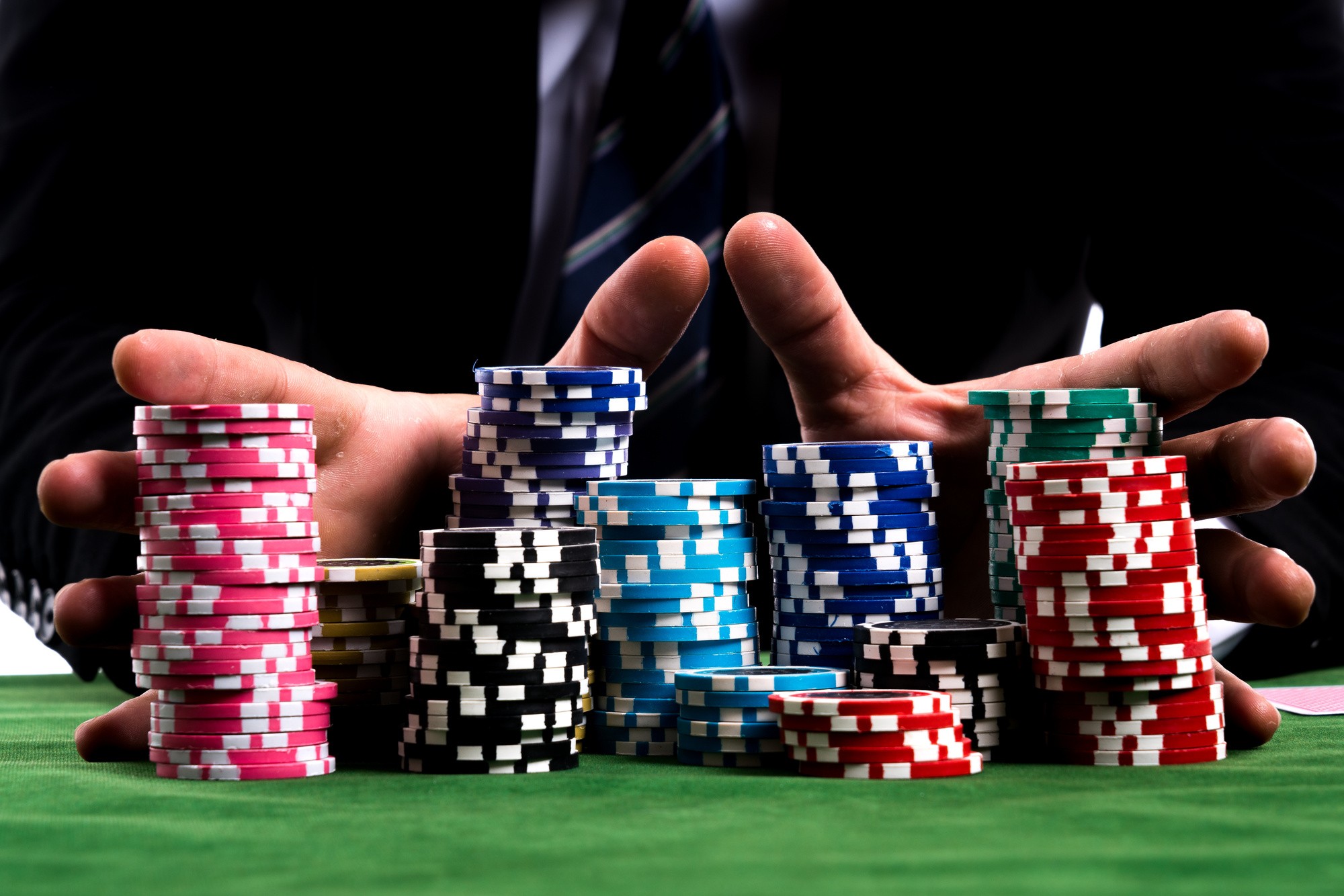Is Gambling A Sin? What Does The Bible Says About It
Is gambling a sin or Is there anything wrong with gambling? Some say yes, while others think it's fine as long as it's not against the law. Gambling, which is also called betting or gaming, is putting something of value or stakes on an event whose outcome is unknown in order to win something else of value.
Author:Scarlet SunsetReviewer:Luna ShadowsongOct 12, 202210.5K Shares258.2K Views

Is gambling a sinor is there anything wrong with gambling? Some say yes, while others think it's fine as long as it's not against the law.
Gambling, which is also called bettingor gaming, is putting something of value or stakes on an event whose outcome is unknown in order to win something else of value.
Lotteries, which are run by the government, are one type of gambling that is legally permitted because it brings in money that can be used for the public good.
Also, gambling helped a lot of people get ahead in life and make a lot of money, whether they did it online or in traditional places.
It's true that gambling is not mentioned in the Bible at all.
It does, however, provide a number of guiding principles that indicate God's thoughts on gambling.
Bible's Guiding Principle In Gambling
A principle is different from laws written in the Bible.
Laws are something that is specific such as "you must not murder" or "you must not steal" which is written in mosaic law.
On the other hand, principles are basic truths that teach us how God Jehovah views things.
They are particularly useful in circumstances that are not specifically governed by the laws that God has established.
A principle is a fundamental truth that directs our thoughts and assists us in making sound judgments.
Understanding God's principles allow us to better understand how he thinks and why he imposes certain laws on us.
Here are the Bible scripture showing Jehovah's thoughts that you may also think and contemplate.
Luke 12:15
“„Keep your eyes open and guard against every sort of greed.
The advice given in the Bible to "watch against every kind of greed" is a conflict with the fundamental premise of gambling, which is to acquire wealth at the expense of other people.
According to its common definition, greed is a strong, self-centered desire for something, especially money, power, or food.
1 Corinthians 10:24
“„Let each one keep seeking, not his own advantage, but that of the other person.
Gambling is all about winning money that other people have lost, which is a very selfish goal. But the Bible tells people to "keep looking, not for their own good, but for the good of the other person."
In fact, you may see that God hates selfish desire in the earliest law given to his nation, Israel, known as the "10 commandments," it says: "You must not desire . . . anything that belongs to your fellow man." (Exodus 20:17)
Isaiah 65:11, 12
“„But you are among those forsaking Jehovah, Those forgetting my holy mountain, Those setting a table for the god of Good Luck, And those filling up cups of mixed wine for the god of Destiny. So I will destine you for the sword, And all of you will bow down to be slaughtered, Because I called, but you did not answer, I spoke, but you did not listen; You kept doing what was bad in my eyes, And you chose what displeased me.
The Bible also warns against considering luck to be a mystical element that gives rewards or blessings.
Some people in ancient Israel lost faith in God and began "setting a table for the god of good luck."
As you may be noticed in the cited scripture, Jehovah does not accept worship and he says: "You kept doing what was bad in my eyes, and you chose what displeased me."
A lot of people say that the reason they gamble or play the lottery is so that they can donate the money they win to the churchor to some other worthy organization.
Even though this is a commendable goal, the fact of the matter is that very few people actually put their gambling gains toward spiritual endeavors.
God is in control of everything, and he will take care of the congregation's needs in an honest way.
Would it be an honor for God to get money from drug sales or from a bank robbery? Of course not.
God doesn't need or want the money that was "stolen" from the poor in the desire to get rich.
1 Timothy 6:10
“„For the love of money is a root of all sorts of injurious things, and by reaching out for this love some have been led astray from the faith and have stabbed themselves all over with many pains.
Gambling fosters a love of money because it focuses on making money quickly.
The Bible says that a love of money is "the root of all kinds of bad things."
Money can easily become the most important thing in a person's life, causing them to worry a lot and negatively affecting their faith in God.
For example, a person who loves money lost his trust in Jehovah's ability to provide enough material things to his servants.
In a figurative sense, those driven by the love of money are said to have "stabbed themselves all over with many pangs."
People Also Ask
Is Gambling A Sin In Hinduism?
Most Hindu practices discourage gambling, and gambling just for fun is looked down on.
But The Life of Hinduism says that during the Divali celebrations in North India, gambling is allowed.
Even kids are given money to play card games and win it.
What's Wrong With Gambling?
Having a gambling problem is bad for your mental and physical health.
People who are addicted to this may have depression, migraines, stress, gastrointestinal problems, and other issues related to anxiety.
Just like other addictions, gambling can lead to feelings of hopelessness and helplessness.
Who Is The God Of Gambling In Hindu Mythology?
Lakshmi is the Hindu goddess of luck and gambling, and people pray to her for any kind of luck in gambling or games.
People also pray to Lakshmi for any kind of luck in life in general. Lakshmi also goes by the names Kamalakshi and Sri Devi.
Why Is Gambling A Sin Catholic
According to Msgr. Kuehner, who heads the archdiocesan Social Development Office, gambling "is not considered sinful except when the indulgence in it is inconsistent with duty."
Conclusion
Thank you for reading this article. The author hopes that what you've read about Bible principles will help you understand how Jehovah feels about it.
Even though the Bible doesn't say anything directly about gambling, it's clear that God hates the love of money, greed, not having faith in him, and believing in the god of luck.
By following the Bible's rules, a person can avoid the bad things that gambling can do to their life and happiness.

Scarlet Sunset
Author
Scarlet Sunset is a captivating and confident transgender individual who radiates sensuality and embraces her unique beauty. With a radiant smile and a touch of red lipstick, she captivates hearts by the poolside as the sun dips below the horizon, casting a warm glow on her unforgettable presence.
Despite societal norms and expectations, Scarlet celebrates her body, proudly defying conventional standards of beauty. Her curves tell a story of self-acceptance and empowerment, challenging stereotypes and inspiring others to embrace their own bodies without reservation.

Luna Shadowsong
Reviewer
Luna Shadowsong, an enigmatic gambler shrouded in mystery, strikes a delicate balance between risk and darkness. With a muscular physique and intricate tattoos adorning her frame, she commands attention in the realm of chance and uncertainty. Behind her innocent gaze lies a seasoned gambler, who fearlessly embraces the exhilarating allure of high stakes. As she savors her cigarette, Luna's enigmatic presence draws others into her world of calculated risks and strategic maneuvers. Luna Shadowsong remains an enigma, whispered about in gambling circles, a symbol of fascination and unpredictable fortune.
Latest Articles
Popular Articles


